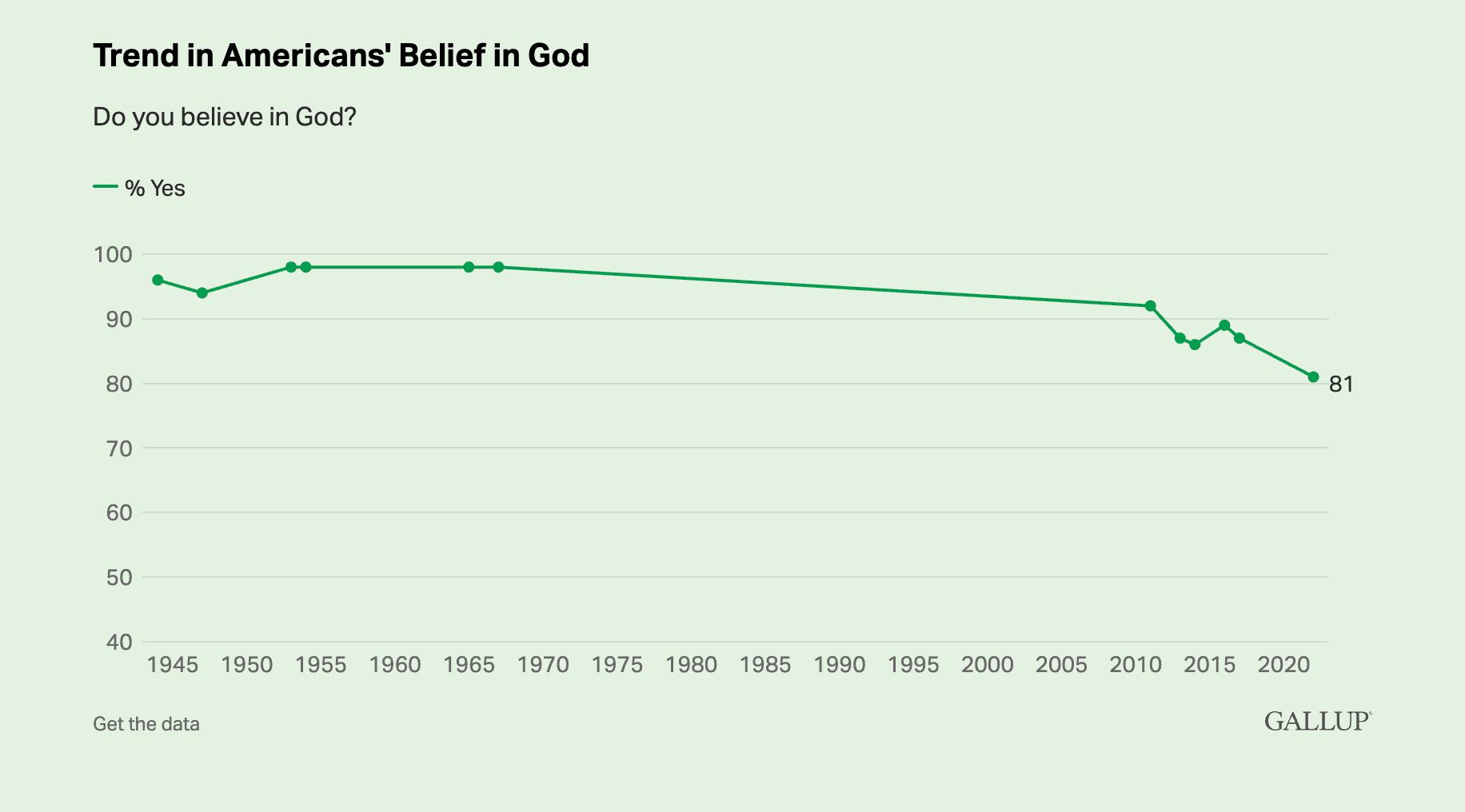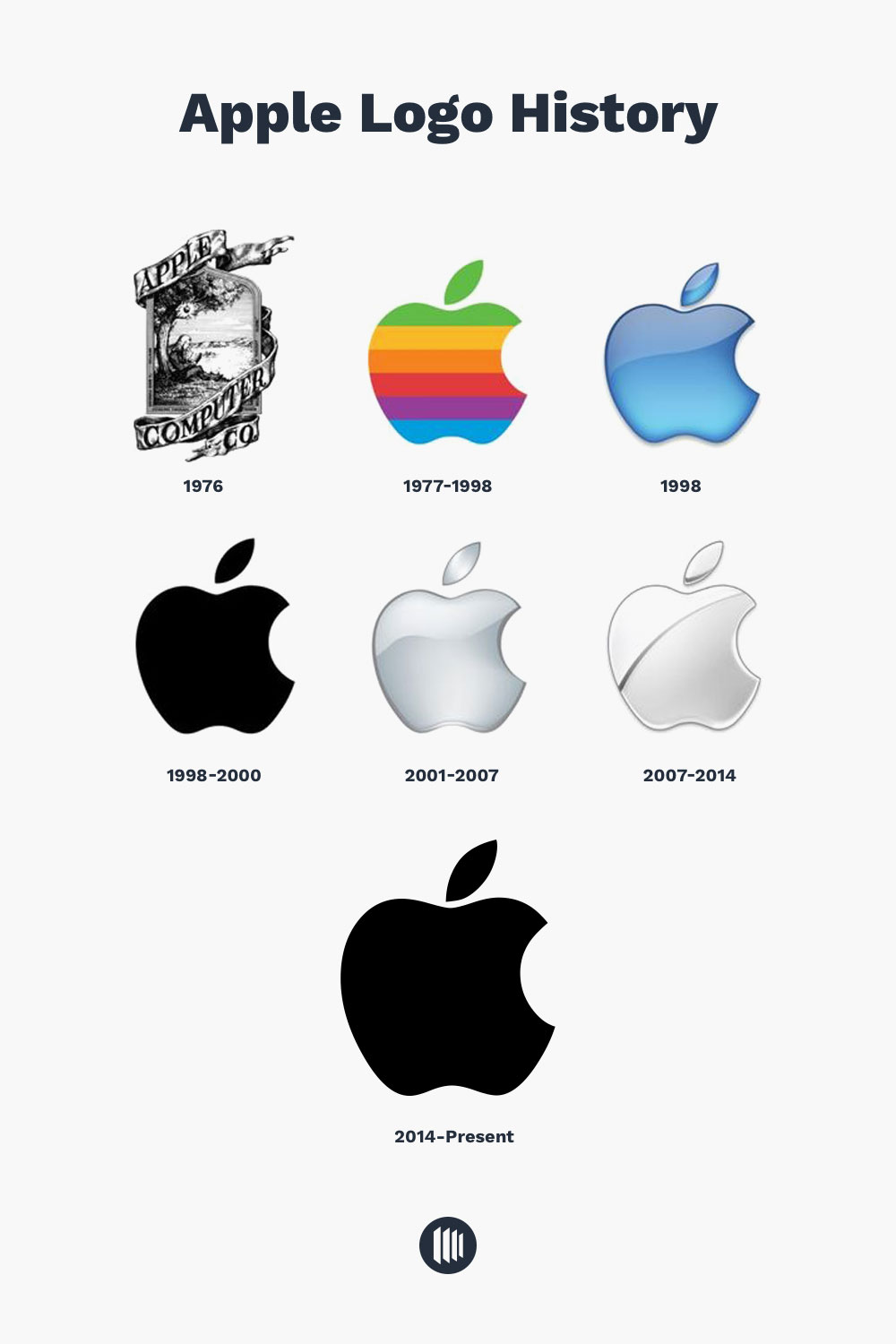America has reached its lowest level of belief in God since the 1950s, and many churches and spaces of worship have begun to shut down. With the decline of belief in religion in our society and our lives becoming more and more virtual, social media is becoming a “church” where we worship various brands, whether that be companies, celebrities, or our individual personal brands. This is putting a premium on trust, authenticity, and transparency associated with products through brand management.
People increasingly want to utilize their purchasing power to create a positive impact for themselves, their community, and the world at large.

Trust in Branding
In Creating the Corporate Soul, Roland Marchand writes about the origin story of brands and branding coming from the customer’s need to trust the product they’re purchasing. The institution of branding began with canned goods as consumers couldn’t physically see the food, so they grew to trust brands that consistently sold them safe and freshly packaged products. This trust created loyalty. Since then, with laws in place to protect consumers’ health and safety, brands have had to sell more than the product itself to keep the conscious consumer happy and loyal.
Religious Components Utilized by Brands
Many brands have drawn from the art of persuasion in storytelling, also commonly een in religious practice. Brands that have excelled in this have become known as brands with a cult following. The Gathering, a Forbes top-rated business and marketing conference, gives out awards to brands that achieve this success yearly. They even have a cult scorecard quiz that rates your brand on its “cult capability.”
Not to say organized religion and cults are interchangeable groups; however, they both have followers with strong devotion that have caught brands’ attention. Some similar behavior traits that brands adopt from religion are the basis of core beliefs and values, membership in a community, and symbols and rituals associated with the brand and customer engagement. Two classic examples of brands that integrate these traits and have achieved this aspirational cult following are Apple and Jeep.
Classic Cult Brands That Continue to Crush it
Apple: Symbols + Values
Apple’s logo and the religious symbolism implicit in Eve’s bitten apple communicate “lust, knowledge, hope and anarchy,” according to Jean Louis Gassee, who designed Apple’s 1977 original rainbow logo. People lining up outside the Apple store for the more recent drop of a product is similar to a religious pilgrimage with eager followers ready to purchase and engage in society’s upgraded technology and access to knowledge in their hands.

Jeep: Rituals + Community Membership
Jeep cultivates a membership to their community and even has rituals ingrained in their adventurous, freeing culture. For example, “the Jeep wave” that Wrangler drivers exchange in passing is also the name of a customer care program they provide. The Jeep community is built on the fundamental belief in helping any Jeep owner in need. Adopting key phrases such as “choose the road less traveled” and “a lifetime of freedom” are ways of life their consumers treat somewhat biblically, following these mottos like a gospel. Not having a Jeep, or Wrangler specifically, keeps you from this exclusive community and reaping the benefits that come with your membership. (Jeep was also among the class of 2018’s Cult Following awarded by The Gathering.)

Current Conversationworthy Cult Brands
Whoop: Health recovery spurs conversation resembling confession, prayer, and gratitude
The Whoop band promotes knowledge about your health and self-care to #UnlockYourself.
If the first thing you look at in the morning is your recovery score, we 👀 you. #UnlockYourself pic.twitter.com/AYDKRvzUyp
— WHOOP (@whoop) August 15, 2022
Although Whoop acclimates to each individual’s body to calculate percentages in regard to progress, recovery, and strain, these statistics have promoted comparative conversation online. Athletes, people who achieve society’s highest aspiration of health and fitness, are known to utilize this brand. In fact, some collegiate teams require athletes to wear the device to track, share and promote best practices. The University of Tennessee was the first collegiate program to partner with Whoop in 2020.
People share updates of their journey online, whether it’s to laugh about excess partying, which negatively impacts recovery, or to celebrate major progress and achievement through a difficult time. Ultimately, this creates a Conversationworthy space where people relate to the post-condition struggles of a horrible hangover or achieving progress toward their ultimate health goals.
Posting these updates to social media resembles the behavior of attending church for a confessional or to express gratitude and celebrate successes. Attributing both to Whoop resembles personal reflection with recognition of behavior or appreciativeness in prayer.
Indianapolis 500 Athlete Marcus Ericsson jokes about what it feels like to be a champion showcasing his 1% recovery rate on Twitter the day after his big win.
People keep asking me how it feels winning the Indianapolis 500. Well this is how it feels the next morning 😂 #ME8 @whoop pic.twitter.com/wq8oGZerid
— Marcus Ericsson (@Ericsson_Marcus) May 30, 2022
John Florence, a professional surfer, celebrates his success after a rocky health journey. He claims, “recovery has become one of my main hobbies in my life,” and thanks Whoop for their role in his progress on their Instagram page. It is interesting to note that recovery can only be achieved by living a relatively wholesome, healthy life.
Where the Crawdads Sing: Art strikes discussion similar to bible study
Another example of cult-like followings can be seen through celebrities’ public images and projects that are consumed similarly to brands. As a storytelling and promotional tool, Reese Witherspoon’s production company, Hello Sunshine, collaborated with Taylor Swift on the recent film, Where the Crawdads Sing, originally a book written by Delia Owens. Taylor Swift’s new song, “Carolina,” encapsulates Kya’s narrative and shapes the film’s trailer. Taylor Swift and Reese Witherspoon both come with large cult followings of their own. Each has a reputation that precedes them. The promotion of the film capitalizes on the public’s knowledge of Taylor Swift’s iconic love stories and Reese Witherspoon’s passion for redefining underdog female characters’ narratives. Without context, you know you’ll be watching a female-centered coming-of-age story, fighting for her truth against all odds, and of course, juggling complicated romantic entanglements.
Taylor Swift’s song that foreshadows the answer to the murder mystery and Reese Witherspoon’s portrayal of the book’s message to society are both studied enthusiastically, or some might say “religiously,” by fans. These conversations surrounding the ethical issues the film calls into question are similar to people gathering to discuss parables in a Bible study.
A Taylor Swift fan tweeted about the song’s success, which was ranked #2 on the iTunes charts. This success not only incites conversation around Taylor Swift’s art but also aids the film’s marketing campaign when it shows up in people’s lives via Spotify playlists and radio stations. Taylor Swift has become such a big pop culture icon, should you choose to ignore her work that charts so well, you may be limiting your awareness of many of today’s trends.
US Swifties!
— fendy (super taylor’s version) (@fendywu_nj) June 24, 2022
Can we extend the #1 itunes record please? Have you all buy #Carolina on itunes? The gap to #1 is so big. Where are you guys?
Spread the words!#TaylorSwift #CarolinaOutNow #CrawdadsMovie pic.twitter.com/TdVtEbbN1i
Analyzing the storyline and morality of characters’ choices mirrors how we read and discuss parables in the Bible or even famous works of literature, such as To Kill A Mockingbird. One fan (and writer herself) compares the two works of art in a tweet. Consuming this film provides insight and perspective into modern ethical issues.
I finally gave in to the FOMO and read Where the Crawdads Sing. It was BEAUTIFUL! There are not many books that have touched me the way this one has but for me its up there with To Kill a Mockingbird. Hats off to the incredible Delia Owens. #CrawdadsMovie #wherethecrawdadssing pic.twitter.com/jo1tTeRYol
— A Drop of Sherry (@SherryHostler) August 15, 2022
Cult Brands, Cancel Culture, and Trust
These examples merely parallel how religion successfully attracts its followers and how brands are searching to provide meaning to customers above and beyond their products. While many cult brands can be super successful, they can be susceptible to cancel culture if they don’t uphold the values that have built their following. With that being said, there is potential hope for a better world with brands being upheld to sell more than just a good product. The conscious consumer wants a brand that follows values and ideals for positive change. In closing, the greatest parallel between religion and branding is the importance of trust, authenticity, the desire to belong, and the eagerness to “do good” in whatever narrative is being sold to the consumer.


